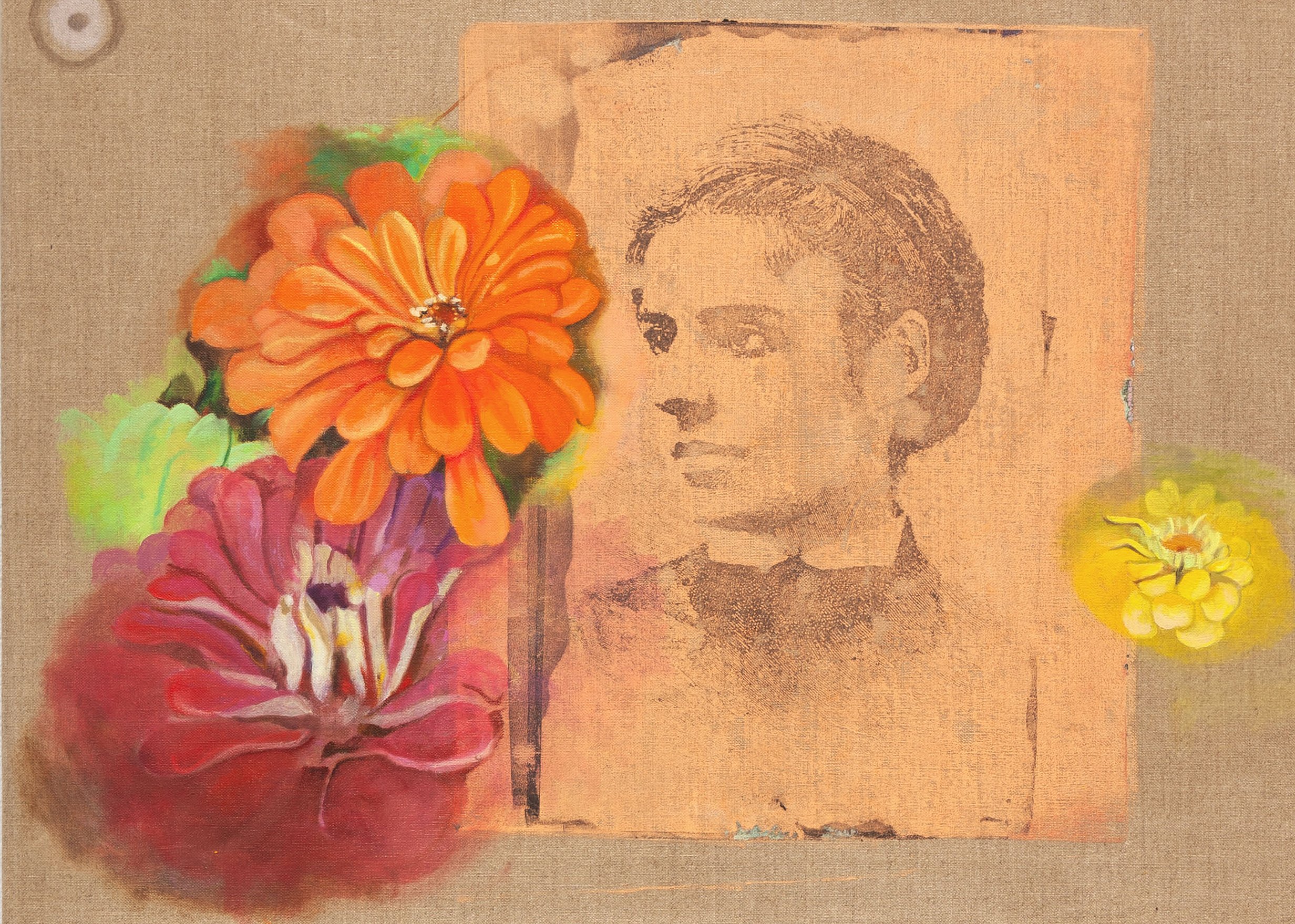You're Gonna Make It After All!
Click here for Grant Wahlquist Gallery Website Show Documentation
Click here for Exhibition Catalogue!
This exhbition is dedicated to the memory of Rochelle “Ricky” Poyourow-Ripple and Eleanor “Ellie” Greenfield.
Press Release:
Grant Wahlquist Gallery is pleased to announce Jill Poyourow’s second solo exhibition at the gallery, “You’re Gonna Make It After All!” The exhibition will run from March 3 through April 8, 2023. The gallery will host a reception with the artist on Saturday, March 18th, from 2 – 5 pm.
“You’re Gonna Make It After All!” is a focused presentation of new paintings and monoprints by an artist whose practice is exceptionally expansive: biology, natural history, migration, personal and cultural genealogy, the history and uses of photography, popular culture, illness, abstraction, and quotidian observations—Poyourow wrestles with and synthesizes them all. Originally trained in the environmental and biological sciences, Poyourow’s earliest works were driven by a hunger to capture the world around her, and this impulse to digest the panoply of her experiences remains, further deepened by lessons learned as a student of Allan Sekula and John Baldessari at CalArts and the indelible imprint of studio visits with feminist artists such as May Stevens and Eleanor Antin. Storytelling is at the heart of all her work, and Poyourow’s own story traverses the heady Los Angeles art world of the 1980s and 90s and her past nearly two decades in the woods of Cape Neddick, Maine. “You’re Gonna Make It After All!” contains many stories, which emphasize resiliency and solidarity from a uniquely Jewish American, feminist perspective.
There are many protagonists in these tales. Some are family members: Great Aunt Esther, who taught Poyourow how to draw and paint as a child; Great Uncle Alex, a lyricist in New York’s vaudeville circuit of the early 20th century; ancestors who made the journey from Eastern Europe to the United States for many of the same reasons as other members of the Jewish diaspora; and the artist’s late and dearly missed mother. These family stories intersect with larger historical narratives, for example that of Emma Lazarus, the Jewish poet and activist whose poem “The New Colossus” is inscribed on the pedestal of the Statue of Liberty (“Give me your tired, your poor, your huddled masses yearning to breathe free!”). Lazarus is the namesake of the Emma Lazarus Clubs, organizations of progressive Jewish women including Poyourow’s Great Aunt Esther, and this exhibition includes many iterations of a letter of solidarity Esther wrote on the Bronx Council of Emma Lazarus Clubs’ behalf to African American civil rights hero Rev. Joseph A. DeLaine in 1955.
These pieces also include numerous images of icons of popular culture of the second half of the 20th century, which not only serve as a generous access point for the viewer but also manifest Poyourow’s commitment to exploring where the public and the personal intersect. These icons share a sense of buoyancy, sometimes quiet, sometimes brash, that make them beloved by audience members who do not always share their backgrounds: Barbra Streisand as Fanny Brice riding a tugboat through New York harbor past the Statue of Liberty in “Funny Girl” (“Nobody’s gonna rain on my parade!”); Jennifer Grey held aloft as “Baby” Houseman in the Borscht Belt (“Nobody puts baby in a corner!”); and, of course, Mary Tyler Moore tossing her hat into the air.
Significantly, the dominant style of the works in “You’re Gonna Make It After All!” is collage-like, and nearly all of them contain some mixture of the above reference points and characters. The mood is Rauschenbergian: bright colors (pastel or acid pinks, blues, yellows, and greens), hybrid media, public and private meanings all mixed together. The exhibition’s retinal zing prompts reflection on enduring and resolutely contemporary questions: How do the stories we inherit and retell create that ever-slippery thing we call “the self”? How does trauma instill or defeat resiliency? How, without collapsing real and salient differences between them, can the experiences of oppressed groups contribute to meaningful solidarity? How do we contextualize and appreciate prior expressions of solidarity in view of changing understandings of what solidarity means? Poyourow’s embrace of these questions results in works that are personal, specific, accessible, and open all at once—and above all, exceptionally fresh.
Jill Poyourow received a B.S. from Western Washington University, Bellingham, and a B.F.A. and M.F.A. from California Institute of the Arts, Valencia. Poyourow's solo exhibitions include: Grant Wahlquist Gallery; POST, Los Angeles (catalogue with essay by Chris Kraus); and the Apex Gallery, South Dakota School of Mines, Rapid City. Her work has been featured in group exhibitions at venues including: POST; Thomas Solomon’s Garage, Los Angeles; the Center for Maine Contemporary Art; Dave Muller’s Three Day Weekend, Los Angeles; Los Angeles Contemporary Exhibitions; the Skirball Cultural Center, Los Angeles; the Armory Center for the Arts, Pasadena; the Laguna Art Museum, Laguna Beach, California; Annika Sundvik Gallery, New York; Side Street Projects, Santa Monica; and the First Biennale Internazionale delle Arti FiliForme.
The gallery is located at 30 City Center, Portland, Maine. Gallery hours are Wednesday through Saturday, 11 am to 6 pm, and by appointment. For more information, visit http://grantwahlquist.com, call 207.245.5732, or email info@grantwahlquist.com.
































